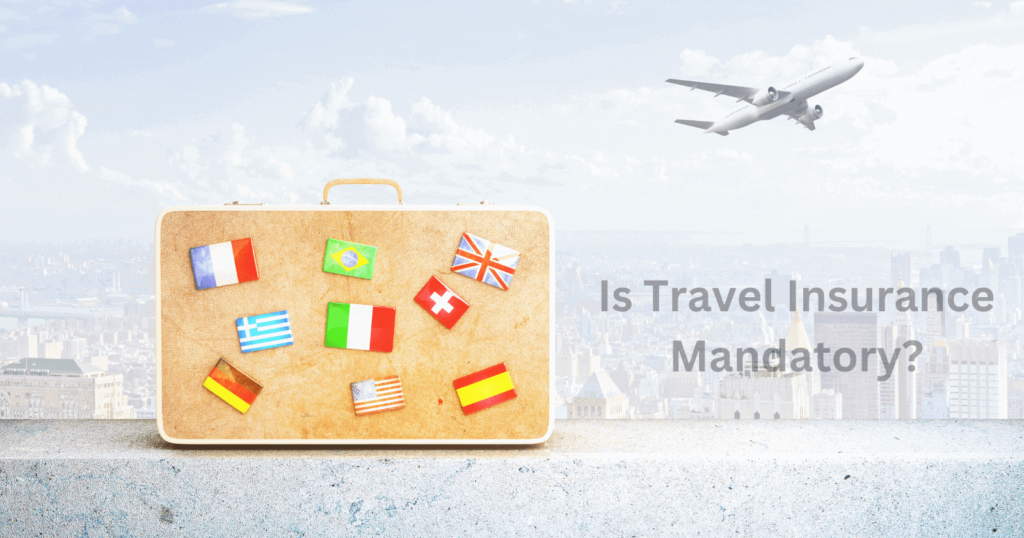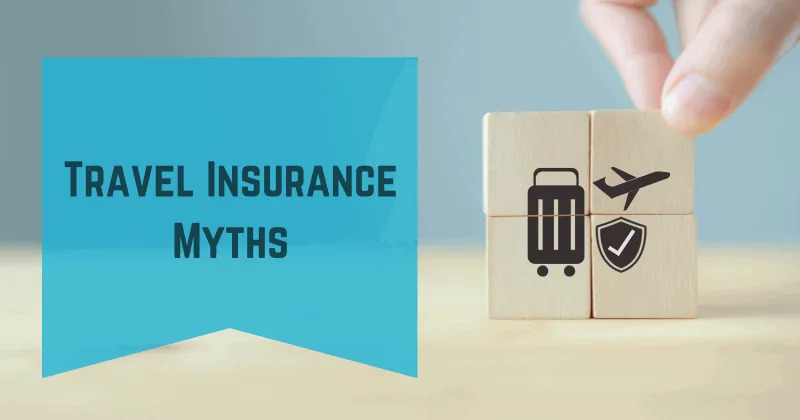Advice for choosing the right type of travel insurance
Travel insurance is like having a trustworthy friend by your side in case something goes wrong while you’re away from home. It could take some time to choose the right coverage, though, because there are so many options. However, don’t worry—we’ve got you covered! We’ve put up some extremely helpful guidance to assist you in selecting the finest travel insurance. If you follow our recommendations, you’ll be able to travel with confidence and make an informed decision.
Ten recommendations for the best travel insurance
Here are some guidelines to help you make informed decisions while buying insurance.
1. The length of the policy
Check if the coverage covers the entire distance of your trip. For example, if you’re going on a two-week vacation, make sure the insurance covers the entire two weeks, not just the first.
2. Claim limit
When buying travel insurance, it’s important to check the policy’s claim limit. The claim limit is the highest sum that an insurance will pay out on a claim. Check to make sure the claim limit meets your needs. It’s always advisable to err on the side of caution.
3. Type of policy
There are other types of insurance coverage, such as yearly and single-trip alternatives. If you travel frequently, an annual policy might be more cost-effective; if you only travel once a year, single-trip coverage is best. Verify that the coverage you select satisfies your needs. For instance, if you are a digital nomad or backpacker who travels frequently, an annual insurance policy would be a better fit for you.
4. Consider the schedule and things to do.
When choosing your travel insurance, take into account the itinerary of your trip and the activities you intend to engage in. For example, make sure to include coverage for similar adventurous activities like paragliding if you’re planning a vacation that involves hiking and trekking.
5. Check the available coverage.
Before acquiring an insurance policy, thoroughly review its contents. Verify if emergency evacuation, medical expenses, and travel cancellation are covered by your insurance.
6. Check for omissions.
It’s important to know what the insurance excludes. For example, exercise caution when determining if pre-existing medical conditions are paid for by the insurance. It’s better to be safe than sorry, so being aware of the exclusions in advance can help you make an informed decision and modify your claim application.
7. Analyze expenses
Before choosing the first insurance you come across, shop around! Make sure you’re getting the best deal by contrasting the offers from several insurance companies. Generally speaking, it’s better to save a little money while keeping the coverage you require.
8. Read the small print.
Make sure you are fully aware of all the terms and conditions before acquiring any insurance. As a result, you will be better informed about what you’re getting into.
9. Investigate other options for insurance.
Extra options for coverage, such protection against terrorism, political evacuation, or extreme sports, may be included in some insurance policies. Because of this, make sure you look into any additional coverage options that could be helpful for your travels.
10. Review online reviews
Look over the client endorsements for a while. This will serve as your demonstration of the insurer’s level of support in honoring their promise to pay out in the event that something goes wrong while you’re on the road.
Examine the cost and coverage of travel insurance.
When a cheap insurance offers less coverage during a catastrophe, saving money is opposed. Spending carelessly on several kinds of coverage that might not be required is also a bad idea. Check the following things to make sure the cost-benefit ratio of your travel insurance is met.
- Trip cancellation: Unexpected events like illness, natural disasters, or family problems may force you to reschedule your vacation. A good travel insurance policy will pay you back for the expense of your vacation if you have to cancel.
- Emergencies related to your health: If you get sick or have an accident while traveling, your medical expenses could quickly rise. Choose a plan that will cover all of your medical costs, including any emergency evacuation that may be required.
- Loss or theft of belongings: While it’s a thought no one enjoys, people’s belongings can be lost or stolen when they travel. Verify that the insurance you select covers your belongings for replacement cost.
- Extra benefits: Some insurance plans may offer additional benefits including reimbursement for delayed flights, lost or delayed luggage, and travel interruption.
- Peace of mind: If you have the right travel insurance coverage, you may travel with assurance knowing that you’re covered in case of unanticipated events.
In conclusion, even if price is a big consideration when choosing travel insurance, it’s imperative to give coverage top priority. By spending a little bit more on high-quality travel insurance, you may significantly improve your protection and that of your trip.
Putting everything together to make the perfect insurance policy
In conclusion, while choosing the right travel insurance may seem challenging, doing so could literally save your life. However, if you follow our advise and consider things like the type of insurance, the coverage offered, and the length of coverage, you may be able to make an informed choice. Don’t forget to search for exclusions linked to COVID-19 as well. Now that you are knowledgeable about selecting the right insurance, you can focus on the positive aspects of your life and eagerly anticipate your upcoming travels.
Frequently asked questions
The most frequently asked questions about selecting the best travel insurance are addressed in this section.
How can I pick the travel insurance policy with the best coverage?
When choosing travel insurance, it’s important to consider the coverage, the type of policy that best suits your needs, and the duration of the policy. It’s also important to compare rates from various insurers, search for exclusions, and evaluate the insurer’s claim limit and claim settlement %.
What is an annual policy?
An annual policy is a type of travel insurance that covers you for numerous trips throughout the year. It’s a cost-effective option if you travel frequently.
What is a single-trip policy?
Single-trip coverage is a type of travel insurance that covers you for a single journey only. It’s great even if you just take one trip every year.
Is purchasing travel insurance now or later preferable?
Generally speaking, it’s preferable to purchase travel insurance at the same time as your itinerary. Should you need to postpone your trip, you will be eligible for reimbursement in cash.
Do I still need travel insurance if this is my only trip domestically?
Even while insurance is not necessary for domestic travel, it can nonetheless offer significant coverage in the event of unanticipated events. Things like health emergencies, misplaced or pilfered items, and postponed travel are examples of unexpected happenings.
Can I still purchase travel insurance if I already have a medical condition?
Yes, depending on the rules. Prior to purchase, it is important to review the policy’s exclusions because certain policies may not cover pre-existing medical conditions.
Would my travel insurance pay me back if COVID-19 forces me to postpone my vacation?
Yes, depending on the policy and the cause for the cancellation. Under some circumstances, some plans may provide reimbursement for travel cancellations brought about by COVID-19, while others may have clear limitations on such cancellations. Furthermore, certain policies can additionally pay for emergency medical costs associated with isolation and customized COVID-19 protection. This is why reading the policy and comprehending the coverage is essential before making a purchase.


